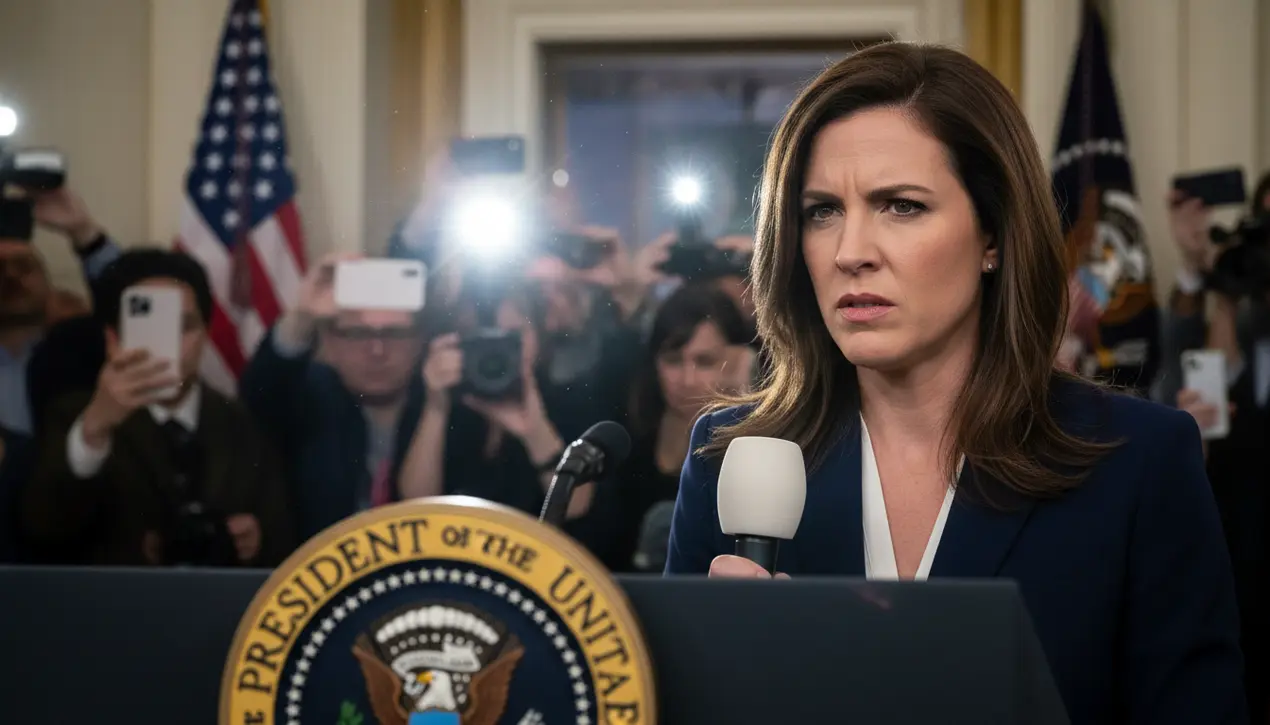
Politicscorruption & scandalsResignations after Scandals
Trump Criticizes Female Reporters, Threatens Broadcast License.
MA
Mark Johnson
1 hour ago7 min read1 comments
In a strategic maneuver that felt ripped from the campaign trail playbook, former President Donald Trump escalated his long-standing war with the media this week, launching targeted attacks against two female journalists and threatening the broadcast license of a major network in what political strategists are calling a calculated escalation of his grievance politics. The firestorm ignited when ABC News reporter Mary Bruce, during a White House visit by Saudi Arabia’s Crown Prince Mohammed bin Salman, pressed Trump on questions he found unfavorable.The President’s response was not merely a heated retort but a direct threat to the network’s regulatory standing, invoking the power of the Federal Communications Commission in a move that sent shockwaves through media circles and prompted immediate First Amendment concerns from press freedom organizations. This incident, however, was not an isolated flare-up but part of a deliberate pattern.Just days prior, aboard Air Force One, Trump had dismissed Bloomberg reporter Catherine Lucey with the deeply personal and derogatory nickname “piggy” after she dared to inquire about his connections to the convicted sex offender Jeffrey Epstein. These parallel confrontations reveal a sophisticated, if troubling, media strategy that his former campaign advisors have long honed: by personally attacking individual journalists, particularly women, and challenging institutional media power, he galvanizes his base around a shared enemy, framing the Fourth Estate not as a check on power but as an opposition force to be dismantled.This tactic, reminiscent of his 2016 campaign’s mastery of 'earned media' through controversy, has evolved. Where he once used Twitter as his primary cudgel, he now leverages the presidential podium and official settings to amplify his assaults, testing the boundaries of presidential decorum and institutional resilience.The choice of targets is also telling. By focusing on female reporters, critics argue he employs a classic tool of political intimidation designed to question their professionalism and credibility through gendered insults, a playbook observed in other global contexts where strongman politics rise.The threat to ABC’s license, while largely symbolic given the FCC’s limited authority over network broadcast licenses and its historical independence, serves as a powerful message to other networks about the potential price of aggressive scrutiny. The immediate fallout saw a predictable partisan split, with supporters cheering his 'fighting spirit' against so-called 'fake news,' while constitutional scholars and veteran journalists from rival publications expressed alarm at the normalization of such rhetoric from the nation's highest office.The long-term consequence, beyond the immediate news cycle, is a further erosion of trust in democratic institutions and an increasingly perilous environment for journalists tasked with holding power accountable. This is not merely a series of rude comments; it is a sustained political operation, a battle being waged in real-time for control of the narrative, and this week’s skirmishes with Mary Bruce and Catherine Lucey were its latest, strategically executed volleys.
#Donald Trump
#Mary Bruce
#Catherine Lucey
#Jeffrey Epstein
#featured
#White House
#journalist attack
Stay Informed. Act Smarter.
Get weekly highlights, major headlines, and expert insights — then put your knowledge to work in our live prediction markets.
Comments
Loading comments...
© 2025 Outpoll Service LTD. All rights reserved.